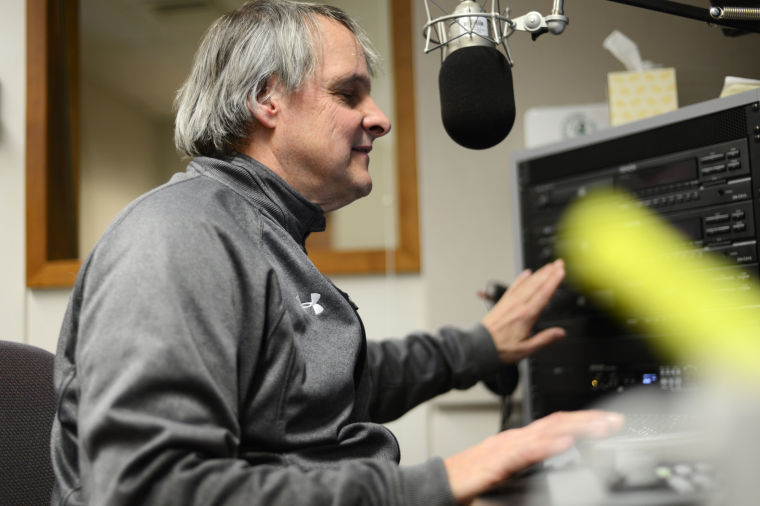Dan Maher: always the listener, never the judge
February 27, 2014
Students who know Dan Maher’s office affectionately refer to it as the “black hole.” Not because of his impaired vision, but because of his eagerness to share his wealth of wisdom.
“If there’s anything tough to get through as students, Dan has already been through it,” said ASWSU senate pro tempore LaKecia Farmer, who has worked with Maher.
Maher, the coordinator of student involvement, has been blind since birth. Born two and a half months premature, his retinas burst and formed scar tissue after receiving too much oxygen in an incubator as an infant.
Maher said he has called Pullman home since 1971, and has worn many hats since graduating from WSU in 1978.
He has been an advisor for WSU student involvement for over 30 years. The list of his groups has included ASWSU Senate, several ASWSU program committees, the Environmental Sustainability Alliance, the Gender and Sexuality Alliance, the Native American awareness group Ku-Ah-Mah, Student Legal Services, the student-run radio station KZUU, the Student Veterans Committee, the International Student Council, and the Dad of the Year selection committee.
Maher said he is a folk singer and guitarist and has recorded five albums. He performs regularly, and makes appearances on the Glenn Terrell Mall and in Sunnyside Park on Fourth of July.
Maher has had a program on Northwest Public Radio called Inland Folk for over 30 years, which has a devoted following, said Gillian Coldsnow, the NWPR assistant manager of programming and operations.
“I really enjoy sharing music,” Maher said. “I think music is the most universal thing we’ve got.”
Although he is an accomplished performer, he said one of his greatest joys comes from advising students.
“What a student needs most is somebody who cares about them, and is in touch with them enough that they can rely on that advisor,” Maher said. “Just to be there to listen, to be there to care.”
He enjoys the individuality of everyone he meets.
“There is kind of a complacency that’s created by the corporate mentality,” he said. “Everyone wants to look like everyone else, but every person you meet is different than the last one. We need to rejoice in the differences between any given individual. As different as we are, we’re still the same. We’re people. The universality and the differences are wonderful. I love it.”
Vision is the primary sense and overrides all the rest of the senses, he said. Being visually impaired allows him to see past superficiality.
“’Never judge a book by its cover.’ Well, you folks see the cover right off the bat,” Maher said. “I don’t. I do like that aspect. It is a lot harder to form judgment without vision, so therefore you have to hunt a little bit harder. You have to explore the individual before you make judgments, rather than making an initial judgment by seeing someone before you even talk to them.”
Maher’s knowledge and the company he shares with his students creates a lasting effect, he said.
“I would like to think if I had a greatest accomplishment, it’s that one of my students achieved what they wanted and just might think back and go, ‘Boy, Dan Maher had an influence on that.’ And I think I’ve achieved that.”
Maher wants to write a book on the stories he’s heard of people with disabilities who live normal lives. He said the media highlights people with disabilities who achieve great feats, but forgets those who cope with their disabilities with a positive attitude in daily life.
Once Maher retires, he said he has many items to check off his bucket list, including visiting Australia, traveling to a country where he doesn’t speak the language, sky diving, hiking the Olympic forest, and attending all U.S. and Canadian baseball games.
Farmer said she does not look forward to Maher’s retirement.
“I don’t think I would be the person I am today without Dan,” she said.








